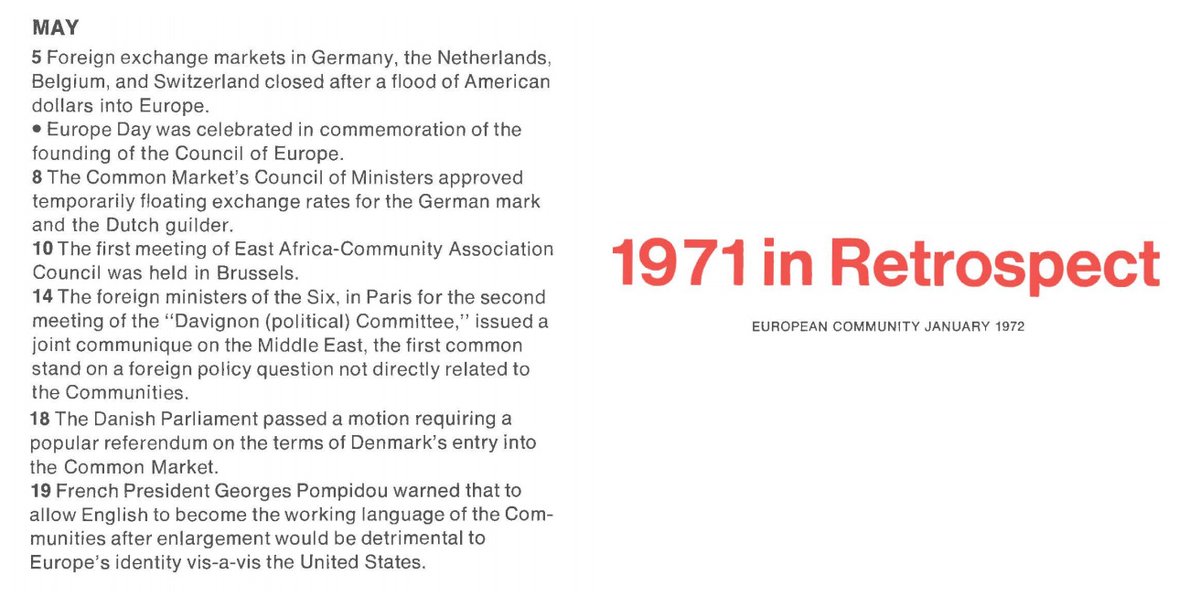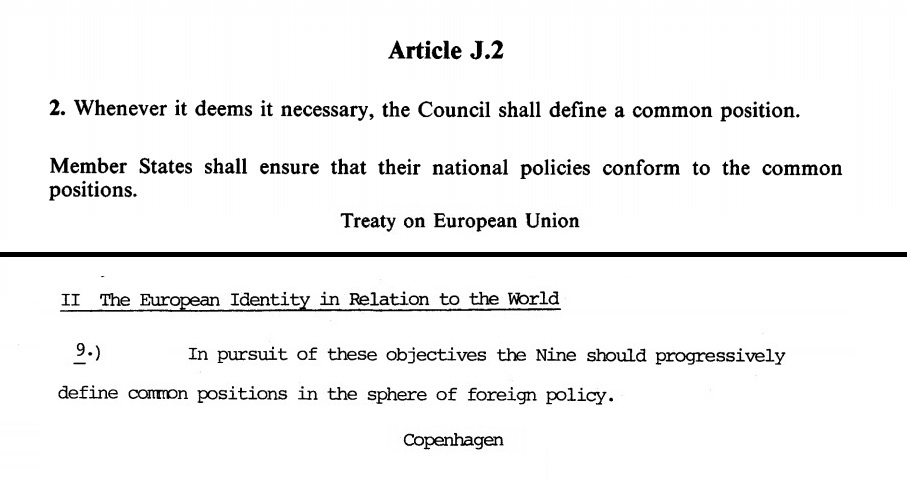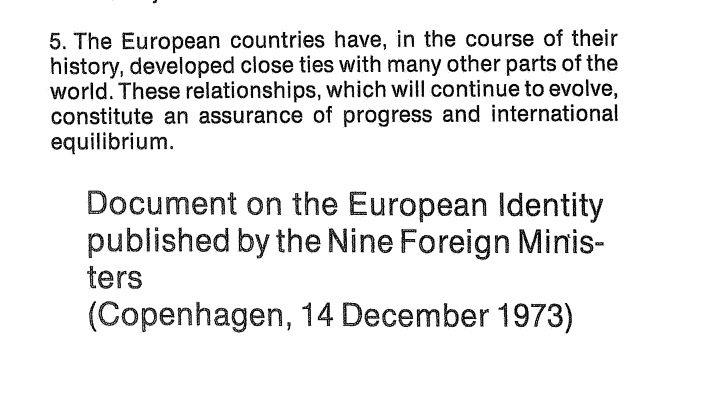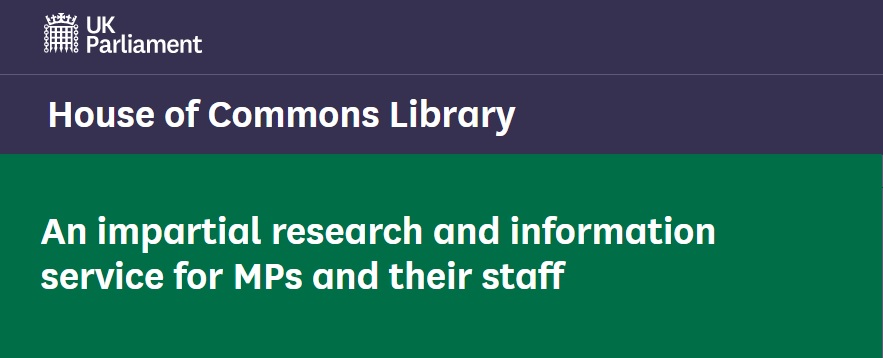
1. Now we’ve seen the defence and foreign policy plans I’m going to comment them through the lens of just this one tweet and the suggestion it all went wrong when it became a political union. (Thread) 

2. The main problems with that line is that the EEC officially becomes a political union on May 14th, 1972 when it goes public with its first joint foreign policy position. 

3. By 1992, the EEC had developed this concept through a number of mechanisms which are very similar to Maastricht when compared closely. 

4. Article J.1.1 of Maastricht is a basic definition of intent to create a foreign and security policy, a similar statement appears in the Davignon report adopted in 1970. 

5. The first two points in J.1.2 lays out the objectives around safeguarding common values and interests, while strengthening the security of the union. Similar sentiments that can be found in Davignon. 

6. The remaining points of J.1.2 involve international cooperation and these sentiments can be found in the Copenhagen report, adopted by the member states in 1973. 

7. J.1.3 lays out the objectives of establishing policy cooperation, joint action, and increasing their solidarity. This looks pretty similar to the two original objectives of Davignon. 

8. J.2.1 is almost identical to Article 30 2(a) of the Single European Act, but with the 'High Contracting Parties' now referred to as member states. 

9. J.2.2 determines that the council will come to common positions and this can be found in Copenhagen. 

10. J.2.3 is about taking common positions in international organisations. That requirement can be found in the text of Copenhagen. 

11. J.3 of the Maastricht treaty introduces a new layer of bureaucracy. There isn’t much to compare it with previous agreements. It is therefore one of the biggest changes Maastricht introduces to foreign policy. 

12. J.4.1 alludes more directly to a future common defence policy than anything in the Common Market, although there was a general reference to maintaining defensive capabilities in Copenhagen. 

13. J.4.2 gives recognition to the Western European Union (WEU) the organisational link was already unofficially recognised. 

14. J.4.5 is also about the Western European Union and, again, it is almost a copy of what appears in the Single European Act. 

15. J.5 sets out the presidency's roll in representing the union, although that does not appear in pre-Maastricht test, the presidency coordinated the foreign policy meetings and therefore it was probably quite common practice. 

16. Section J.6 is about how diplomatic and consular missions shall cooperate to ensure their common positions are maintained, and the Single European Act has a similar clause. 

18. J.8.1 states that the Council will define the principles and general guidelines. The Single European Act equivalent describes this as ensuring common principles and objectives that are gradually developed and defined. 

19. J.8.2 states that the Council will define and implement the policy and unity and consistency based on those guidelines, and it shall ensure consistency. Consistency of action is also required in the Single European Act. 

20. J.8.3 states that any member state or the commission may refer a question or submit a proposal. This goes back to Davignon, although the commission are not included as they are in Maastricht. 

23. J.9 declares that the Commission will be fully associated. Commission involvement in foreign policy is probably the biggest changes in this area. Previously they were only involved when necessary. 

24. J.10 explicitly refers to a review of the defence policy clause in J.4 in terms of review, in contrast to the new Davignon that has a much wider review remit. 

25. Finally J.11 introduces more bureaucracy and there is now a new reference to an administrative budget. 

26. What Maastricht doesn’t have is a provisions for applicant countries.
This was written into Davignon during the negotiations of the extended community.
This was written into Davignon during the negotiations of the extended community.

27. In 1971 it was decided to allow applicant countries on to the Political Committee as soon as they signed.
(This is what Edward Heath is referring to in this clip)
(This is what Edward Heath is referring to in this clip)
28. Political discussions didn't start in 1970.
Davignon was building on the political meetings amongst foreign ministers that started as early as 1959.
Davignon was building on the political meetings amongst foreign ministers that started as early as 1959.

29. Now, if the Common Market was political for a decade before we even joined, and if the European Communities was a political union before Maastricht, what other objections were made to Maastricht?
30. Monetary union was definitely a major issue for some Eurosceptics.
32. The logic of a common market leads to a common currency, and this is what the French ambassador wrote while detailing France’s Common Market reservations in 1956. 

35. A more recent complaint of Maastricht is that it introduced citizenship, and that changed free movement of labour to free movement of people by establishing the Right of Residence.
36. It’s true that voting rights came with Maastricht, but the Right to Residence was already a recognised attribute of freedom of movement, and it was supported in Common Market legislation. 

37. And there is the problem:
For years we’ve been sold a fantasy story about a mythical Common Market and its demonic descent into a political union.
For years we’ve been sold a fantasy story about a mythical Common Market and its demonic descent into a political union.

38. There is nothing true in this.
It was a political union, and far from being ‘popular’ people tended to be overly negative about the EEC.
It was a political union, and far from being ‘popular’ people tended to be overly negative about the EEC.

39. And it really does seem like most Eurosceptics, before the treaty of Amsterdam introduced defence, objected more to the completion of the Common Market than the actual political union. 

40. With both traditional Eurosceptics, and their post-Maastricht equivalent, driven by an over-romanticised view of the past mixed with a desire to want the world to stop evolving around them. 

41. To see how dangerous this is, we only have to look at the traditional Eurosceptic argument that Davignon didn’t provide us with anything we couldn’t already do in the Western European Union. 

42. The Western European Union lost that evolutionary race, and in leaving the EU, we now have less say on our own continent than any time before at least 1955. 

43. Nobody should be surprised, therefore, that the UK are now focusing on India, Japan, and Australia while looking to buy new nuclear weapons. 

44. We’ve now chosen the trade relationship with Europe, and it's time that the people who wanted to roll back our political cooperation to the 1950s explain how we now get our own voice heard on our own continent.
/End
/End
• • •
Missing some Tweet in this thread? You can try to
force a refresh














